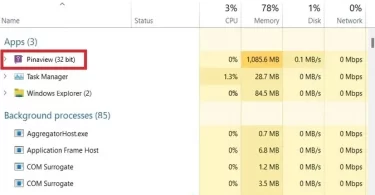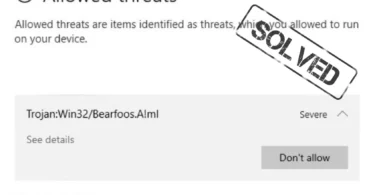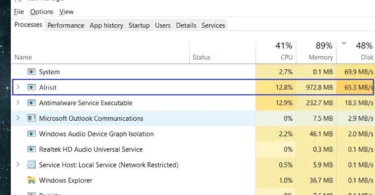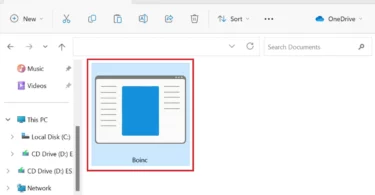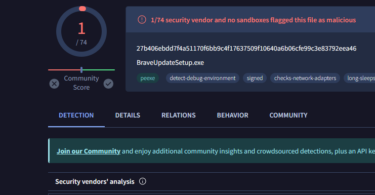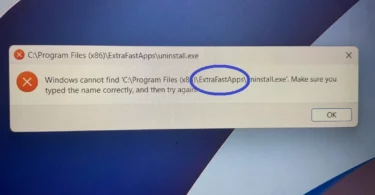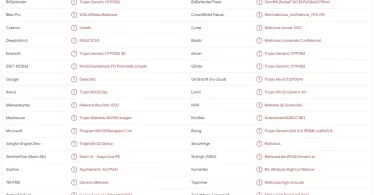Proxyware Trojan Pinaview tries to present itself as a helpful utility, but in reality, it is malware disguised as a simple gimmick program with barely any functional features. It’s basically a reskin of Viewndow, another malware app, and its...
Category - Trojan
What is a Trojan?
A Trojan horse virus is a type of malicious code that uses deception in order to trick users into allowing it on their computers. The name is derived from the Ancient Greek tale, in which a wooden horse was allowed into the besieged city of Troy under the guise of a trophy. But as it turned out, the horse was actually filled with enemy warriors who ended up capturing and destroying the city.

The Trojan Horse Virus
So, the comparison here is that Trojan viruses pretend to be something they’re not. And once they have entered their victim’s system, they are free to execute their true purpose.
Now as to what that may be, the possibilities are numerous. Trojan horse viruses are incredibly versatile and can be programmed for a wide range of different malicious tasks. We will cover these in a little more detail further on in this post, but a brief list of what they are capable of includes theft, spying, data corruption and performance disruption.
Aside from their versatility, Trojans are also known for being rather difficult to detect as they rarely have any symptoms. And although we do call this malware type ‘viruses’, that is a misnomer and it’s good to know that Trojans aren’t actually the same thing as regular viruses. One important distinction between the two is that unlike regular viruses, Trojans cannot self-replicate.
How does a Trojan infect you?
The answer to this question is in the name of the malicious code we’re discussing. Namely, Trojans will use a variety of disguises in order to deceive you into trusting them and installing them in your system.
For example, a Trojan horse may pose as a legitimate software application available for download on some questionable (or even illegal) website. And once you give your permission and run the executable file on your computer, it is free to perform whatever malicious task it was initially designed for.
Alternatively, and this is perhaps the more common scenario, you may receive a Trojan via email or some other messaging platform. In this case, the Trojan will be disguised as an attached file, or perhaps it may even be embedded in a link that you are asked to click on. In either instance, one click is usually all it takes to unleash the malware. If you have a message/file/link like this that you have suspicions about but aren’t entirely sure of, we have a free virus scanner that you can make use of.
What can a Trojan do?
This is where things get bizarre. Trojans are so unbelievably multifaceted, the mind boggles at the amount of potential havoc they can wreak on one’s system. Here is a list of possible usages that this malware category can be employed for, but it is by no means extensive.
- Destruction. Trojans can be programmed to downright corrupt files and even whole operating systems by formatting disks, deleting data, etc.
- Backdoor. A malicious piece of this types may be used to act as a ‘backdoor’ to your system for third parties to access it or for other malicious threats to enter (e.g. ransomware).
- Remote access. In this case, the Trojan will provide its creators with remote access to your computer and allows them to gain complete control over it.
- Banking. There are Trojans designed specifically to steal financial information from the infected computers.
- DDoS. Trojans can also be used to launch DDoS attacks in order to take down certain networks. In this case the malware will send multiple requests to the targeted web address from your computer.
- Spying. Trojan horses can very often also be used for the purpose of spying on you and/or the way you use your computer. For instance, it can take screenshots, make a list of the active applications or even log your keystrokes.
How to remove a Trojan?
As pointed out, Trojans are quite notorious for their ability to hide very well in the infected system. Some may even mimic system processes or files in order to avoid detection. So locating a Trojan in your system is by no means an easy task and is best done with the help of a professional malware scanner, such as the one you can download here.
Please feel free to search the removal guides we have developed if you know the specific Trojan that has infected you as well. They contain instructions on how to locate and delete the malware manually.
How to Remove Bearfoos Malware From Your PC
The Bearfoos Trojan is a generic malware detection by Windows Defender, similar to Win.MxResIcn.Heur.Gen, that indicates a potential Trojan Horse infection in the system. While this warning is sometimes a false positive, you should take this malware...
How to Remove the Alrisit Application
Alrisit is the latest iteration in a long line of malicious programs like Alrucs and Altruistics that exploit your PC’s resources for undisclosed cryptocurrency mining. It’s also associated with another common malware named Barousel. In...
How to uninstall the Altruistics App
We are proud to present our removal instructions for the Altruistics Software trojan app that appears in Windows. The Altruistics app creates a process in the task manager called altruistics.exe and poses as an official app you can look up in...
How to uninstall the Boinc Malware
We ran into a bit of a weird situation in our research. A trojan masquerades as a legitimate program. Such a thing isn’t new – security threats do it all the time, especially trojans, which is what’s happening here. What’s new here is that the...
What Is Win.MxResIcn.Heur.Gen and How to Remove It?
Win.MxResIcn.Heur.Gen is a VirusTotal detection by the MaxSecure engine that appears to frequently get triggered by apps and files that should be safe. This leads to many users questioning its validity and rightfully so. Indeed, the Win.MxResIcn...
How to Remove ExtraFastApps (Everything You Must Know)
Our quest to find the latest cyber threats and help our readers deal with them led us to something called ExtraFastApps. Not much is known about this piece of software, other than it’s linked to PC Accelerate (a potentially unwanted program)...
Trojan.Malware.300983.susgen – Virus Removal Report
We created this page for the removal of Trojan.malware.300983.susgen, which is a current outbreak of a Trojan Horse – a malware that infiltrates PCs and serves a backdoor for other threats to come in. This is where the namesake comes from, the...
W32.AIDetectMalware – What It Is and How to Remove It
W32.AIDetectMalware is probably one of the most common Trojan Horse detections nowadays, which leads many people to believe that this is simply a false positive and not a real threat. In many instances W32.AIDetectMalware is indeed a false...
How to remove the Warmcookie Backdoor Malware
This page is dedicated to educating victims on what Warmcookie does and to its removal. A big thank you for the security researchers who made their information public, including Elastic and Esentire. Without the notice they gave everyone, we...

